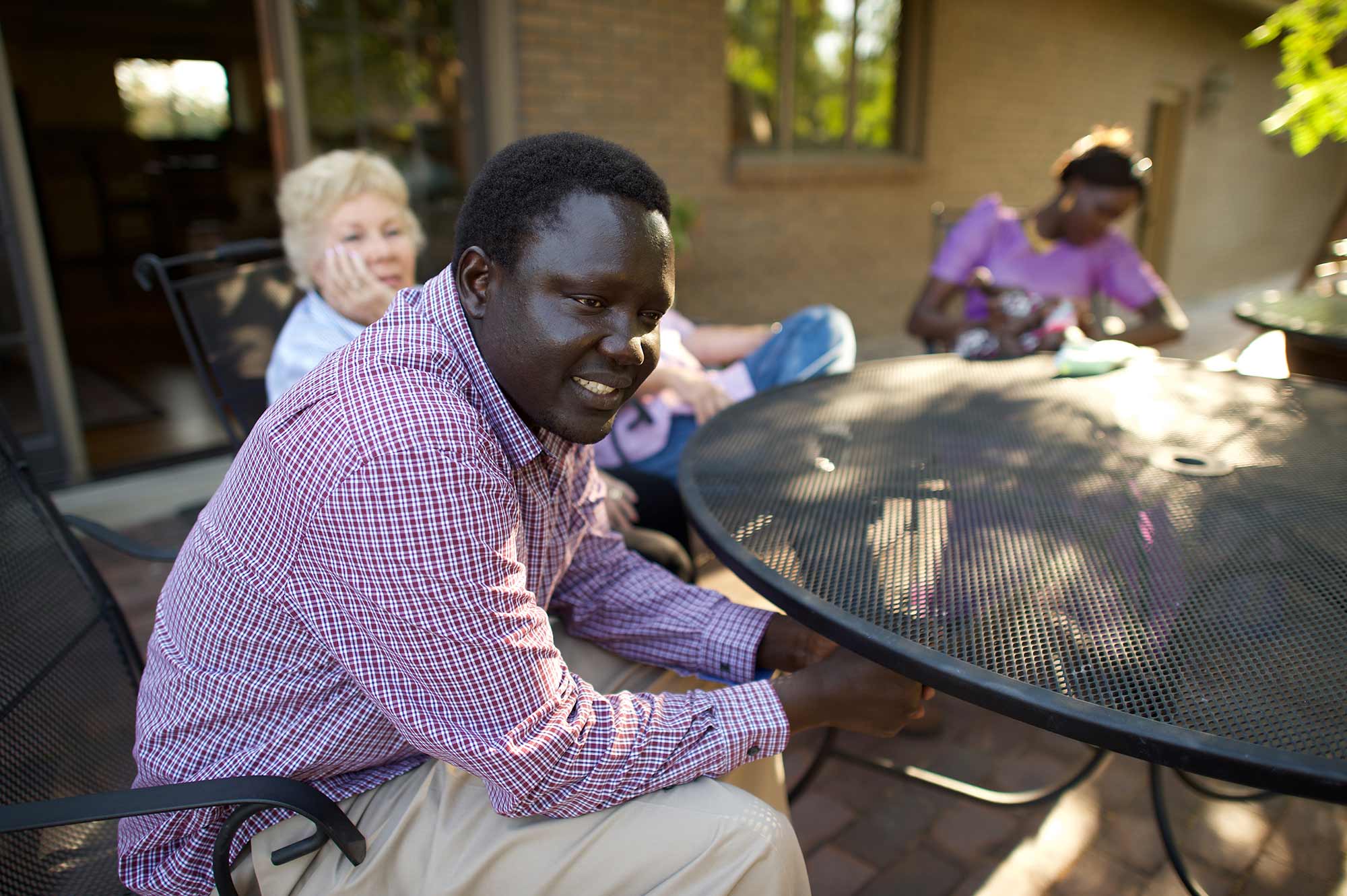The Faith of Refugees
Steve Wunderli

The disruption of lives around the world through unstable economies and war has sent people fleeing to safe places. Many are families. Many leave families behind. Caught in the turmoil of politics and an uncertain future, it’s remarkable to witness the faith of these refugees in the face of so much hopelessness. I interviewed a number of them within a year of their landing in the United States. They are from the Congo, Somalia, Tanzania, and South Sudan. Here are some of their stories:
Jeremiah left his village in South Sudan at the age of 4 when his parents were killed. He was one of the lost boys who survived the 400-mile-trek to Ethiopia, and two years later, to Kenya where he stayed for 12 years before coming to America where he is now a U.S. citizen. His family was Christian, although he doesn’t remember what denomination. In the camp, he was taught by Catholic nuns. “I always knew that God was leading me,” he says. Jeremiah became the natural leader of his group of 30 boys who came to America, encouraging them to get their college degrees and to believe that God knew them–a long ways from that desert trek when they were 4 and 5 years old. When I asked Jeremiah how he survived, he said: “Because I believe in Jesus Christ.”
Hawa is a tiny young woman from Somalia who was also raised in the refugee camp in Kenya. She is Muslim and the silk scarf loosely wrapping her head accentuates her beautiful face. She doesn’t stop smiling the whole time we talk. She is one of seven children. “It was always our dream to come here,” she says. “I want to be a teacher. I love children.” Education is a light to those in refugee camps. As the mind develops the world opens up and hope increases. Hawa’s family always had faith in a better life and they never gave up hope. Their faith was in a future place where they could worship without persecution. Now they are part of a very diverse community. “Yes, I love it,” Hawa says. “People are from all over the world.”
Bashire found himself in the middle of the conflict in Burundi. He moved to Tanzania, then back to Burundi to find a wife. After marrying, he and his wife fled to a refugee camp in Tanzania to wait out the war. But the war kept going and the camp was no place to raise a family. After nine years they came to the U.S. The kids enrolled in school, two are now in college. “We knew God was watching, but we didn’t really find him until we came here,” Bashire says. “We just worked every day and hoped for a better life. And now we have one.”
The story of each refugee is different, yet each is weaved with common threads. The brightest color being their daily hope, their faith that life will get better. Each believe in God, and each worships in a different way. And perhaps that is the beauty of it. Each person brings their faith into the tapestry of a community. All over the country refugees are becoming part of existing faith communities. The community is then enriched by the different insights and experiences they bring. You have to wonder if that is the way God intended it to be. That He gives a bit of truth here, an insight there, and a myriad of experiences. When a community comes together to befriend, all are enriched. It’s diversity by design. After all, aren’t we all His creations? And all who seek Him will find a path that leads to Him.
Jeremiah told me that along his trek there were small miracles, mostly in the form of people who would feed them, or hide them, or give them directions to safe passage. From Heaven’s view, I wonder if we could see this great migration of God-seeking people, slowly moving and coming together, separating themselves from those who would persecute and do harm.
As those with faith exercise their beliefs and seek God, I believe that we are the ones along the path pointing the way to safe passage, offering them a bit of nourishment and being strengthened ourselves by their hope.
![]()